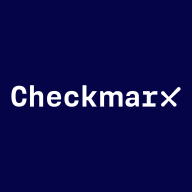

Checkmarx One and GitHub Advanced Security compete in the security management category. While Checkmarx One is noted for its comprehensive security coverage, GitHub Advanced Security has an advantage due to its seamless integration within the development workflow.
Features: Checkmarx One offers extensive security capabilities, robust risk analysis, and management tools. On the other hand, GitHub Advanced Security is known for seamless workflow integration, superior code scanning features, and functionalities that better fit existing processes.
Room for Improvement: Checkmarx One needs better integration with development environments and improvements to user interface and initial configuration processes. GitHub Advanced Security could enhance its reporting options and extend functionality support but continues to enhance based on feedback.
Ease of Deployment and Customer Service: Checkmarx One offers flexible deployment but can be challenging during initial setup. GitHub Advanced Security is easily activated within existing GitHub environments. Customer service is reliable for both, with GitHub's being more consistent and accessible.
Pricing and ROI: Checkmarx One provides good value with high security but has higher setup costs. GitHub Advanced Security is worth the price for its integration, offering promising ROI through improved efficiency, despite higher initial costs.


Checkmarx One is an enterprise cloud-native application security platform focused on providing cross-tool, correlated results to help AppSec and developer teams prioritize where to focus time and resources.
Checkmarx One offers comprehensive application scanning across the SDLC:
Checkmarx One provides everything you need to secure application development from the first line of code through deployment and runtime in the cloud. With an ever-evolving set of AppSec engines, correlation and prioritization features, and AI capabilities, Checkmarx One helps consolidate expanding lists of AppSec tools and make better sense of results. Its capabilities are designed to provide an improved developer experience to build trust with development teams and ensure the success of your AppSec program investment.
GitHub Advanced Security secures data by scanning for vulnerabilities in dependencies, secret scanning, and protecting sensitive information. It integrates seamlessly, reducing reliance on multiple tools and optimizing vulnerability detection.
GitHub Advanced Security is designed to enhance security awareness by offering comprehensive tools for secret scanning, code analysis, and SCSS dependency checks. AI-driven features deliver accurate security insights while minimizing false positives. It provides valuable integration with Azure DevOps, maintaining control within dashboards and enabling external systems' support through APIs. With CodeQL, users can perform custom queries across projects. Propelled by Microsoft, the platform enhances operational frameworks with essential security features, although improvements are needed in dashboard consolidation, reporting, and integration mechanisms. Users seek better customizability, language support, and training resources to ensure smoother implementation.
What are the key features of GitHub Advanced Security?Industries implement GitHub Advanced Security to maintain robust security standards. It is favored by technology sectors seeking seamless integration with Azure DevOps and looking for customizable security tools tailored to project needs. Financial institutions value its accurate threat detection and compliance support, while enterprises focus on its comprehensive dependency scanning and code analysis capabilities to safeguard critical assets. The adaptability of GitHub Advanced Security across different operational environments illustrates its practical benefits.
We monitor all Application Security Tools reviews to prevent fraudulent reviews and keep review quality high. We do not post reviews by company employees or direct competitors. We validate each review for authenticity via cross-reference with LinkedIn, and personal follow-up with the reviewer when necessary.